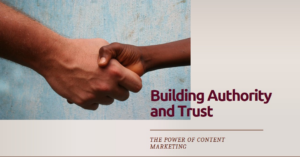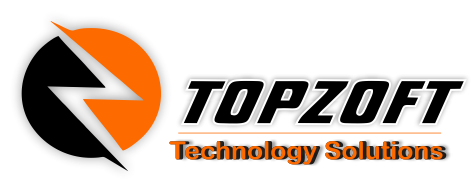Introduction:
In today’s digital landscape, building authority and trust are essential for businesses aiming to establish a strong online presence, attract customers, and drive sustainable growth. Content marketing has emerged as a powerful strategy for achieving these goals by creating valuable, informative, and engaging content that resonates with audiences and positions businesses as authorities in their respective industries. In this guide, we’ll explore how content marketing can be used to build authority and trust, driving meaningful connections with your audience and fostering long-term relationships.

1. Establishing Expertise through High-Quality Content:
Creating high-quality content is the foundation of building authority and trust with your audience. Develop content that showcases your expertise, knowledge, and insights in your industry or niche. This could include blog posts, articles, whitepapers, case studies, videos, podcasts, or infographics that provide valuable information, solve problems, or address common questions and concerns among your target audience. By consistently delivering valuable and informative content, you can establish yourself as a trusted source of information and build credibility with your audience.
2. Demonstrating Transparency and Authenticity:
Transparency and authenticity are key components of building trust with your audience. Be open and honest in your communications, and don’t be afraid to share your successes, failures, and challenges along the way. Showcasing the human side of your business through behind-the-scenes content, employee spotlights, or customer testimonials can help humanize your brand and foster a deeper connection with your audience. By demonstrating transparency and authenticity in your content, you can build trust and credibility with your audience, leading to stronger relationships and increased loyalty over time.
3. Providing Value and Utility:
Focus on providing value and utility to your audience through your content marketing efforts. Address their needs, interests, and pain points by creating content that educates, entertains, or inspires them. Offer practical tips, actionable advice, or thought-provoking insights that help solve their problems or improve their lives in some way. By consistently delivering valuable and useful content, you can position your brand as a trusted resource and build authority in your industry, ultimately earning the trust and loyalty of your audience.
4. Building Relationships through Engagement:
Engage with your audience proactively through your content marketing efforts to build relationships and foster a sense of community. Encourage interaction and dialogue by asking questions, soliciting feedback, and responding to comments and inquiries promptly. Actively participate in relevant online communities, forums, and social media platforms where your audience congregates, sharing your expertise and contributing valuable insights to discussions. By building relationships through engagement, you can establish trust, credibility, and loyalty with your audience, driving long-term success for your business.
5. Leveraging Social Proof and Authority Signals:
Utilize social proof and authority signals to reinforce your credibility and trustworthiness with your audience. Showcase customer testimonials, reviews, endorsements, or case studies that highlight the positive experiences of satisfied customers. Display trust badges, certifications, awards, or affiliations that demonstrate your authority and expertise in your industry. Incorporate social proof and authority signals strategically throughout your content to reassure your audience of your credibility and reliability, ultimately building trust and confidence in your brand.
6. Measuring and Optimizing Performance:
Measure the performance of your content marketing efforts regularly to gauge their effectiveness in building authority and trust. Track key metrics such as website traffic, engagement, conversion rates, and brand sentiment to evaluate the impact of your content on your audience. Analyze which types of content resonate most with your audience and drive the desired outcomes, and optimize your content strategy accordingly. By continuously measuring and optimizing performance, you can refine your content marketing efforts to better align with your audience’s needs and preferences, ultimately strengthening your authority and trustworthiness over time.
Conclusion:
Building authority and trust with content marketing is a long-term endeavor that requires dedication, consistency, and authenticity. By establishing expertise through high-quality content, demonstrating transparency and authenticity, providing value and utility, building relationships through engagement, leveraging social proof and authority signals, and measuring and optimizing performance, you can build trust, credibility, and loyalty with your audience, driving meaningful connections and fostering long-term relationships that benefit your business.
As you implement these strategies, remember that building authority and trust is an ongoing process that requires continuous effort and adaptation to evolving audience preferences and industry trends. By staying true to your brand values and consistently delivering value to your audience through your content marketing efforts, you can establish yourself as a trusted authority in your industry and build lasting relationships that drive sustainable growth and success for your business.



